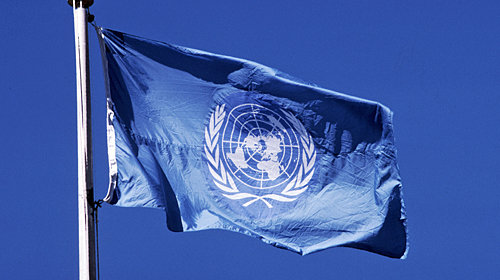U.N. Holds U.S. Accountable for Human Rights Violations at Home and Abroad


"The United States is abandoning its role as the global champion of human rights," warned Jimmy Carter in a . Less than two years later, Carter's warning has been vindicated. Yesterday, the U.N. Human Rights Committee issued a blistering report on the U.S. government's role in perpetuating injustices both within its borders and abroad.
This month in Geneva, the U.S. faced a barrage of questions from renowned human rights experts regarding its compliance with the International Covenant on Civil and Political Rights (ICCPR), one of the few international human rights treaties the U.S. has ratified. , the committee raised critical points about the United States' responses to questions on issues such as counter-terrorism operations overseas, treatment of migrants, racial disparities in the criminal justice system, and . The U.N. committee's findings and recommendations (called "") address many of the issues raised by ACLU and other groups in reports and briefings that took place prior to the US review.
The committee condemned the United States' lack of accountability for disappearance, torture, and unlawful killings of terrorism suspects, and . In addition, the committee denounced racial disparities in law enforcement that have led to the incarceration of a disproportionate number of minorities (particularly Blacks and Latinos), effectively denying them basic human rights throughout the criminal justice process. This includes severe sentencing such as the death penalty and life without parole for juveniles; improper use of solitary confinement; and denial of civil rights following incarceration (most notably, the right to vote).
While the committee noted several areas where the U.S. record has improved since its last review in 2006, the Concluding Observations include important structural recommendations, such as creating an and expanding existing mechanisms to monitor the implementation of human rights at – providing them with adequate human and financial resources.
The ICCPR review process perfectly exemplified "naming and shaming", a human rights tactic widely used by the U.S. government against other states, but one that too often is not effectively used against the United States itself. Although the committee's findings are not legally binding, they carry an important moral weight and demonstrate that international tolerance of U.S. "exceptionalism" is declining.
Within one year, the U.S. government is required to submit a follow-up implementation report on four key recommendations: (including ), lack of accountability for the Bush administration's violations of human rights, closing Guantánamo, and NSA surveillance. We are urging the Obama administration to immediately take concrete steps to rectify the human rights violations identified within the review and work with Congress, state, and local governments as well as civil society to implement the committee's recommendations. This will be important step towards regaining U.S. moral leadership to champion human rights globally.
Learn more about human rights and other civil liberty issues: Sign up for breaking news alerts, , and .

